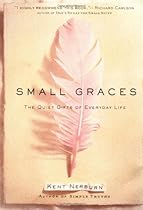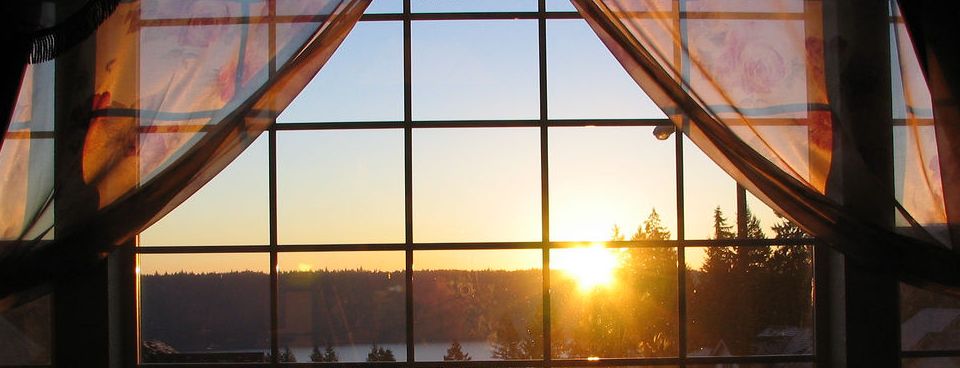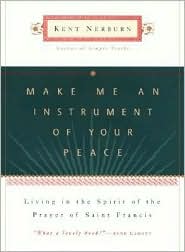Morning Light – by Peter Kaminski
Our home is the caretaker of our memories.
From our windows, our imaginations take wing.
I walk to my window to greet the day. I chose this window for my own long ago, as one chooses a chair or a spoon or a mug. I seek it out each morning before the others in the house awake. It faces slightly to the north, so the morning sun enters it obliquely, giving the light the delicious subtlety of indirection. From it I can watch all of life turn toward the coming of the day.
Whenever I have had to move from a house, the memory I have carried with me — the memory that has most animated my spirit — is always the memory of the light, and the way it cascaded in through the windows and illuminated the passing moments of the day.
Sometimes a shaft, sometimes a soft glow, sometimes a brilliant illumination that made me fear that the house itself was on fire. But it is always in the memory of light that the spirit of the house comes to life.
This house I live in now will forever touch my spirit for the way it offers me the dawn. From my window the day arrives like the distant chanting of a prayer.
I sit before the window and watch the growing dawn. A memory of Alice rises before me, for it was Alice who taught me about windows. She was small, frail, framed in a halo of light from the window before which she sat. I approached cautiously, and knelt beside her.
“Alice?” I asked.
She turned to me. Her eyes were cloudy, but filled with light.
“They said you would be willing to talk to me about life here.”
She nodded.
This was not a task I had relished. I was writing a small piece about life in nursing homes, and my sense of rage at the heartless way our elders must end their lives had almost overwhelmed me.
My heart had been torn a thousand ways as I had walked the halls and spoken to the residents in these places that claim to care for our aged and give dignity to their final days. It had been a gauntlet of pain and sorrow. The lonely; the incoherent lost in their private memories; the dazed; the angry; those who grabbed your arm and begged, “Daddy, Daddy, take me out of here, I want to go home” — all of them and more had confronted me and filled me with a deep and unassuageable grief.
With each footstep tears welled up within me and I raged against a heartless God, a heartless society, the cruel ways of nature and the sadnesses of life. My heart did not have enough tears to purge the rage and pain that were washing across me.
“You must talk to Alice,” the nurses had said. “She will show you something.”
Reluctantly I had agreed to do so.
And now I was beside her. She said “Good morning,” but her eyes were staring out the window. I did not wish to disturb her; I kept my silence.
“Look,” she said finally, pointing out the window. The traffic flowed noisily below. The cacophony of a life she would never again share rose up from the streets. I stared through her one opening into the outside world. Far in the distance was the cupola of a cathedral.
“Isn’t it beautiful?” she said. “I come here every day to watch the sun rise. I’ve been all over Europe. I’ve seen Notre Dame and St. Peter’s and the Duomo in Florence. But none was more beautiful than this, and I can see it every day.”
I looked out. The sun was bursting around the edges of the dome, enveloping it in a halo of pastel light. The sun reflected off her glasses, and I could see the tears in her eyes.
We spoke a bit. I took some notes. But none of that mattered. It was the cathedral, and the dawn, and the radiant morning light that we were sharing. She reached over and grabbed my hand.
“Isn’t this a gift?” she said.
I did not know what to say. I had come that morning, prepared to look with sadness on the shrinking horizons of her life, to weep for her lost dreams and the tiny window that framed the boundaries of her day. But those were my tears, not hers. Her tears were for the beauty. From her window she received the spirit of the dawn.
I think often of Alice. She was an artist of the ordinary. The great French Impressionist painter Claude Monet had sat before a window, painting the cathedral at Rouen as the light played upon its surface over the course of a day. Alice was doing no different, but she painted with the colors of her heart.
I left that day changed in some fundamental way. I had wanted to define the walls of Alice’s prison; she had wanted to give me the gift of the day. I had wanted to see limitation; she had wanted to show me possibility.
She had taken a moment from the seamless flow of time and space and held it up in private consecration, and we had partaken of it together in a small communion of our spirits.
As I walked back down the hall, one of the nurses who had directed me to Alice looked up from her desk
“Did she show you something?” she asked.
“Yes,” I answered softly.
“Her window?”
“Yes.”
“I thought so,” she smiled, and went back to work.
I walked out into the morning with the eyes of a child.
By Kent Nerburn
from Small Graces: The Quiet Gifts of Everyday Life
Reproduced on Zen Moments with the author’s kind permission
and with permission of New World Library, Novato, CA. www.newworldlibrary.com
Kent Nerburn is the author of the moving story – The Cab Ride I’ll Never Forget
 Small Graces: The Quiet Gifts of Everyday Life
Small Graces: The Quiet Gifts of Everyday Life
By Kent Nerburn
A personal journey that reveals the sacredness of the small things in life, and what they can teach us about living spiritually fulfilling lives.
Kent Nerburn – see his blog www.kentnerburn.com – is the highly acclaimed author of several books on spiritual values and Native American themes. Kent is also the author of the famous Cab Ride Story. You can support Kent’s work by purchasing autographed copies of his books directly from his bookshop Wolfnordog.com, which also features a range of beautiful gift baskets.
Review:
![]() Very POWERFUL stuff here! By Blaine Greenfield
Very POWERFUL stuff here! By Blaine Greenfield
SMALL GRACES by writer, sculptor and theologian Kent Nerburn caught me off guard . . . I wasn’t expecting much from this short book of 20 essays, but as I got more into it, the more I was impressed with both its beauty and simplicity.
It made me think about moments in my life that I thought were ordinary – yet, in reality, are much more than that . . . as Nerburn notes, “We become artists when we see with our hearts instead of our eyes” . . . methinks that this is something that we all need to do, regardless of profession.
I find myself reflecting about one section, in particular . . . the author describes a teenager’s anguish about having to walk around on crutches for a relatively short period of her life (because of an accident) . . . she naturally finds it upsetting, yet it also helps come to the realization that she’ll never again complain when she comes across an older person walking slowly.
There were several memorable passages; among them:
- She smiles, helps Nick with his knife. In Japan, one who masters the gentle art of making tea can be declared a national treasure. I watch her hold his hand gently in hers. Should one who practices the gentle arts of making a home be revered any less?
- “No, your life isn’t ruined. Now your life is your life. No one else can fix it or change it. No one else can be blamed. This is yours. And it is up to you what you will make of it.”
- None of us is promised tomorrow. Today, in all its beauty and sadness and complexity, is all we have. This light we see may be the last such day we have on this earth. There is no certainty, beyond the fact that one day we will have no tomorrow, and that it is not ours to know when that day will be.
Powerful stuff!
And so, too, is the conclusion:
- Sometimes, it seems, we ask too much. Sometimes we forget that the small graces are enough.
I’ll cherish SMALL GRACES for a long time and will want it to share it with others . . . you’ll want to do the same if you give it a shot.
Make Me an Instrument of Your Peace
Living in the Spirit of the Prayer of St. Francis
By Kent Nerburn
Kent Nerburn’s Make Me an Instrument of Your Peace, immerses us in the spirit of one of the most universally inspiring figures in history: St. Francis of Assisi. The Prayer of St. Francis boldly but gently challenges us to resist the forces of evil and negativity with the spirit of goodwill and generosity. And Nerburn shows, in his wonderfully personal and humble way, how we each can live out the prayer’s prescription for living in our everyday and less-than-saintly lives.
“Where there is hatred, let me sow love…Where there is injury, let me sow pardon…” Expanding upon each line of the St. Francis Prayer, Nerburn shares touching, inspiring stories from his own experience and that of others and reveals how each of us can make a difference for good in ordinary ways without being heroes or saints. Struggling to help a young son comfort his best friend when his mother dies, moved by the courage of war enemies who reconcile, being wrenched out of self-absorbed depression by responding to someone else’s tragedy, taking a spirited old lady on a farewell taxi ride through her town-these are the kinds of everyday moments in which Nerburn finds we can live out the spirit of St. Francis.
By incorporating the power and grace of these few lines of practical idealism into our thoughts and deeds, we can begin to ease our own suffering-and the suffering of those with whom we share our lives. And, remarkably, find a way to true peace and happiness by tapping into our basic human goodness. As we open our hearts and embrace his words, St. Francis “touches our deepest humanity and ignites the spark of our divinity.”
Lord, make me an instrument of thy peace.
Where there is hatred let me sow love,
Where there is injury let me sow pardon,
Where there is doubt, faith,
Where there is despair, hope,
Where there is darkness, light,
And where there is sadness, joy…
In this beautifully written book, Kent Nerburn leads us into the heart of the St. Francis Prayer and line by line demonstrates how St. Francis’s words can resonate in our lives today.
Reviews:
- “An ennobling book. It will not only make you feel better, it might just make you a better person.” — — Huston Smith, author of The World’s Religions
- “Kent Nerburn has written a little jewel of a book, to warm the heart and touch the soul.” — — Rabbi Harold S. Kushner, author of When Bad Things Happen to Good People
- “What a lovely book!” — — Anne Lamott, author of Bird by Bird and Traveling Mercies: Some Thoughts on Faith
- “I cannot tell you how much I enjoyed Ken Nerburn’s Make Me an Instrument of Your Peace. I have never realized the depth of thought in that brief prayer of St. Francis. Kent Nerburn, in a few masterful strokes and touching stories, plumbs its depths and offers us a precious little treasure.” — Joseph F. Girzone, author of Joshua



Wow! That is all I can say… Kent Nerburn is THE most amazing spirit and writer… the capture of a moment he manages to do with words is… unspeakable. Thank you for sharing!!
Thanks for the great post Kent! This post reminds me of a quote by Robert Bault
�Enjoy the little things, for one day you may look back and realize they were the big things.� We often take things for granted. It is only when we lost them that we learn how important they are.